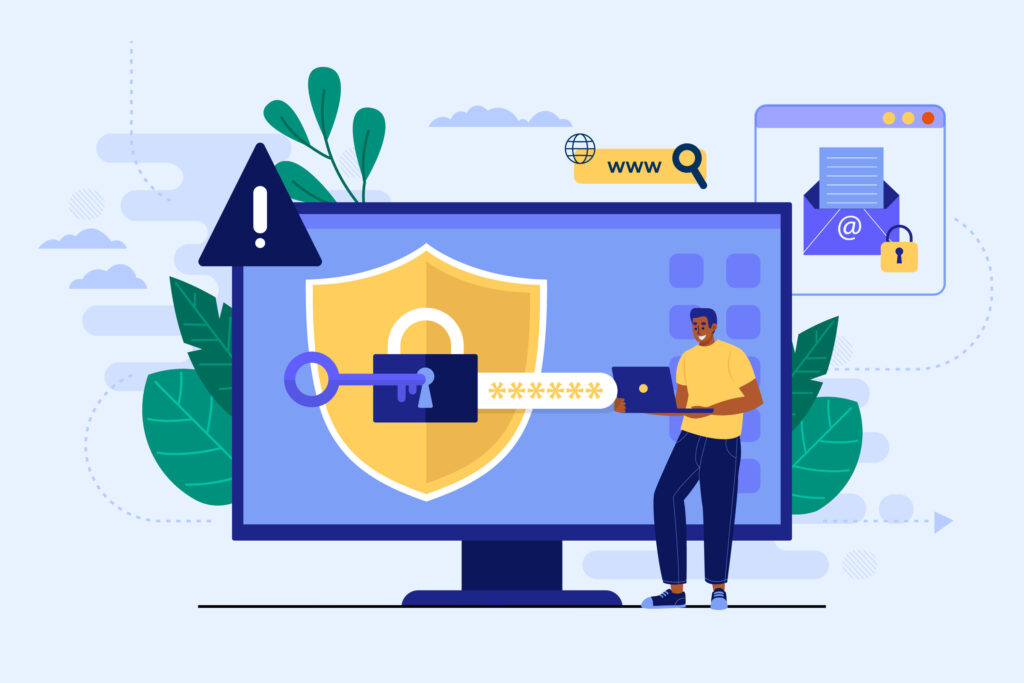In the digital age, websites have become a crucial aspect of any business or organization. They serve as the primary means of communication, interaction, and transaction with customers and stakeholders. With the increasing reliance on websites, maintaining their security has become a top priority.
As one of the most popular content management systems (CMS), Drupal has gained widespread adoption due to its flexibility and robust features. However, with its popularity comes the risk of potential security threats. Here, we will delve into the importance of Drupal security and maintenance in safeguarding your website from potential cyber attacks.
We will explore the common vulnerabilities of Drupal sites, the best practices for securing your website, and the essential maintenance tasks to keep your site up to date and secure.
Whether you are a Drupal site owner, developer, or administrator, understanding the importance of security and maintenance is crucial in protecting your website and maintaining your online reputation. Let’s dive into the world of Drupal security and maintenance and ensure your website is well-protected in the ever-evolving digital landscape.
Regular updates are crucial
To ensure the ongoing security and functionality of your Drupal website, regular updates are of utmost importance. By regularly updating your Drupal core, modules, and themes, you can safeguard your website against potential vulnerabilities and security breaches.
These updates not only address any existing bugs or issues but also provide patches and fixes to enhance overall performance. Moreover, staying up-to-date with the latest updates ensures compatibility with new technologies and web standards, allowing your website to stay relevant and optimized in the ever-evolving digital landscape.
Implementing a proactive approach to regular updates is a fundamental aspect of website maintenance, ensuring a secure and reliable online presence for your business.
Implement strong password protocols
In order to further enhance the security of your Drupal website, it is essential to implement strong password protocols. Weak passwords are one of the most common vulnerabilities exploited by hackers, making it imperative to enforce stringent password requirements.
Promote the idea of users crafting passwords with a minimum length of 12 characters, incorporating a blend of both uppercase and lowercase letters, along with numbers and special characters. Additionally, it is advisable to implement a password expiration policy, prompting users to change their passwords periodically.
Enforcing these robust password guidelines can substantially diminish the chances of unauthorized access and strengthen the overall security of your Drupal website.
Utilize security modules and plugins
To further bolster the security of your Drupal website, it is crucial to utilize security modules and plugins. These tools offer additional layers of protection by addressing specific vulnerabilities and implementing advanced security features.
One example is the Security Kit module, which enhances the security of user input by filtering and sanitizing data to prevent malicious code injections. Another useful plugin is the Login Security module, which adds measures such as limiting login attempts and enforcing account lockouts to prevent brute-force attacks.
By incorporating these security modules and plugins into your Drupal website, or you can consult more issues and queries regarding maintenance problem with the experts at https://www.allianceinteractive.com/website-maintenance/ as they can significantly enhance the resilience against potential threats, ensuring the integrity and safety of your digital presence in today’s rapidly evolving digital landscape.
Conduct regular security audits
In the modern digital era, conducting routine security audits is crucial for upkeeping the security of a Drupal website. These audits entail a thorough examination of your website’s security strategies, policies, and procedures, aimed at detecting any potential vulnerabilities or weaknesses.
By conducting these audits regularly, you can stay proactive in mitigating potential risks and preventing unauthorized access or data breaches. Furthermore, security audits provide an opportunity to evaluate the efficiency of your existing security measures and to implement any required modifications or enhancements to guarantee the highest level of protection.
With the ever-evolving nature of cybersecurity threats, conducting regular security audits is a proactive and essential step in safeguarding your Drupal website and preserving the trust of your users and customers.
Stay informed on security news
Remaining vigilant and staying informed on the latest security news is paramount in safeguarding your Drupal website in the digital age. The landscape of cyber threats is continually changing, with new vulnerabilities and attack methods arising on a regular basis.
Remaining informed about security developments enables you to stay ahead of potential threats and proactively safeguard your website. Keeping an eye on reputable sources such as security blogs, industry forums, and official security advisories will provide you with valuable insights into emerging threats, vulnerabilities, and best practices.
Additionally, subscribing to security newsletters and joining relevant online communities can keep you connected to the latest security trends and discussions, allowing you to stay informed and make informed decisions to bolster the security of your Drupal website.
As the digital landscape continues to evolve, the importance of maintaining strong security measures for websites becomes increasingly crucial. With Drupal’s robust security features and thorough maintenance practices, website owners can rest assured that their online presence is protected from potential threats.
By implementing strategies such as regular updates and backups, as well as utilizing secure hosting platforms, Drupal offers a reliable and secure option for businesses and organizations looking to safeguard their websites in the ever-changing digital age. So, take the necessary steps to protect your website and ensure its longevity in today’s fast-paced online world with the help of Drupal.






